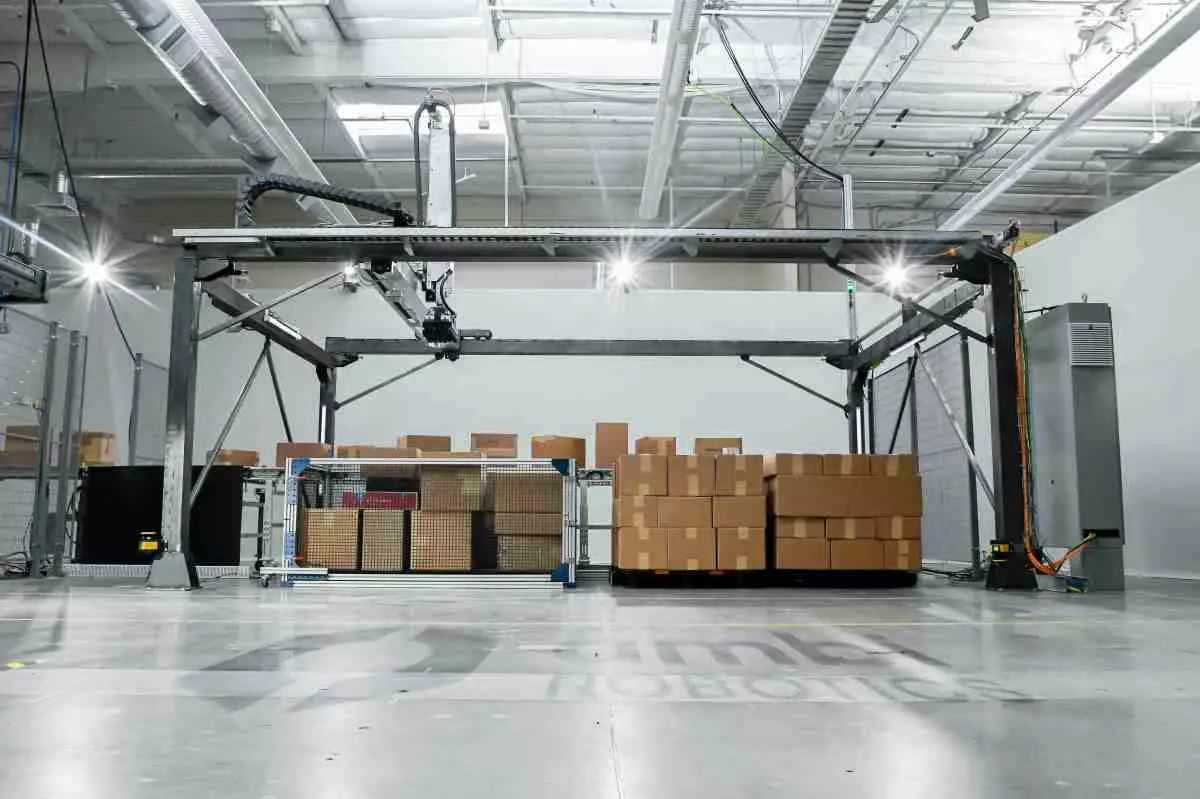In an era where automation is reshaping industries, Ambi Robotics stands out with its innovative approach to warehouse logistics. The company’s latest offering, AmbiStack, represents a significant advancement in automating pallet packing—a process traditionally fraught with inefficiencies and risks for human workers. With automation taking center stage in warehousing, AmbiStack’s introduction is timely, especially given the increasing demand for efficient logistics solutions.
AmbiStack features an industrial robotic arm strategically positioned above a conveyor belt, adeptly maneuvering along the X and Y axes. Utilizing suction cups attached to a gripping mechanism, this robotic arm lifts boxes from the conveyor for the purpose of stacking them onto pallets. The automation of both picking and stacking is a game-changer, combining two labor-intensive operations into a single workflow. This not only expedites the process but also minimizes the strain on human workers who previously undertook these hazardous tasks.
The importance of this innovation cannot be overstated. Traditional methods, such as manual handling and the use of forklifts, have long been associated with a range of workplace injuries. AmbiStack alleviates these concerns by completely removing human involvement in critical stages of logistics, thus promoting a safer working environment. In the context of warehouse operations, where efficiency and safety are paramount, such innovations are essential.
AI-Driven Performance
Ambi Robotics prides itself on developing solutions that integrate advanced hardware and software. The AI component of AmbiStack is particularly noteworthy; it has been trained on over 200,000 hours of real-world warehouse data. This extensive training provides the system with the ability to adeptly analyze and handle a wide array of package sizes, ensuring versatility in different warehouse environments. The intelligent software underpins the efficiency of the system, allowing it to make real-time decisions regarding package handling and placement.
Pre-sales efforts for this automated solution have already begun, with initial deployments set for mid-2025. Ambi Robotics is also preparing to expand its manufacturing capability by early 2026, reflecting the anticipated demand for its innovative systems. This proactive approach is indicative of the company’s commitment to not just innovation but also to scalability.
Ambi Robotics was established in 2018 by students from UC Berkeley, under the guidance of leading robotics expert Ken Goldberg. Since its inception, the company has launched several models, including the AmbiSort A-Series, which focuses on sorting smaller parcels into bins—a task that, while crucial, demands less precision than stacking. Following this, the AmbiSort B-Series was introduced in 2023, enhancing sorting capabilities to an impressive rate of 1,200 sorts per hour. The lineage of product development showcases the company’s trajectory toward more complex logistical automation tasks, culminating in the release of AmbiStack.
Over the years, Ambi Robotics has garnered significant investment—over $67 million—from prominent investors, including Tiger Global and Bow Capital. This financial backing is a testament to the company’s potential and its pivotal role in advancing warehouse automation technology.
While Ambi Robotics is making substantial strides in automating warehouse solutions, it operates in a competitive landscape teeming with other innovative firms. Players such as Pickle, Righthand, and Hai Robotics are also vying for market share, alongside Covariant, co-founded by another UC Berkeley professor, Pieter Abbeel, whose technology has made inroads into Amazon’s systems. Additionally, Boston Dynamics, now owned by Hyundai, is also investing in this sector with its robot, Stretch.
The COVID-19 pandemic acted as a catalyst for many logistics companies to redouble their efforts toward automation. Early shutdowns illuminated the inefficiencies in manual operations, prompting a rush toward technological solutions. Even as staffing challenges persist in the post-pandemic era, the thirst for automation remains strong, making this an opportune moment for companies like Ambi Robotics.
Ambi Robotics is positioning itself as a formidable player in the realm of warehouse automation with its groundbreaking AmbiStack system. By prioritizing safety, efficiency, and scalability, the company meets the evolving demands of the logistics industry. As it stands at the forefront of a pivotal transformation, the impact of AmbiStack on workforce dynamics and the future of warehouse operations will likely be profound. As industries navigate the complexities of post-pandemic recovery, innovations like those offered by Ambi Robotics are not just beneficial; they are essential.

